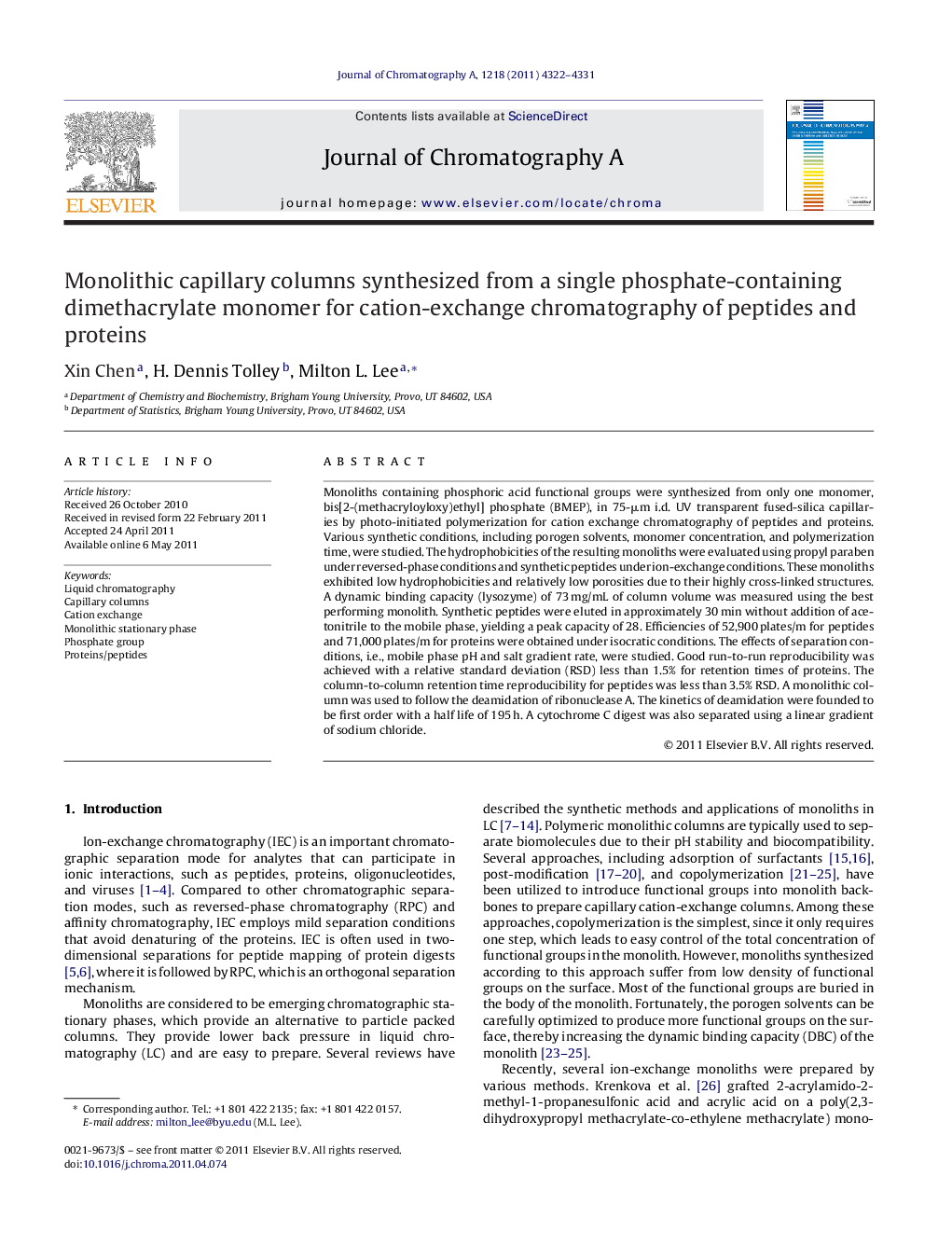| Article ID | Journal | Published Year | Pages | File Type |
|---|---|---|---|---|
| 1203633 | Journal of Chromatography A | 2011 | 10 Pages |
Abstract
Monoliths containing phosphoric acid functional groups were synthesized from only one monomer, bis[2-(methacryloyloxy)ethyl] phosphate (BMEP), in 75-μm i.d. UV transparent fused-silica capillaries by photo-initiated polymerization for cation exchange chromatography of peptides and proteins. Various synthetic conditions, including porogen solvents, monomer concentration, and polymerization time, were studied. The hydrophobicities of the resulting monoliths were evaluated using propyl paraben under reversed-phase conditions and synthetic peptides under ion-exchange conditions. These monoliths exhibited low hydrophobicities and relatively low porosities due to their highly cross-linked structures. A dynamic binding capacity (lysozyme) of 73 mg/mL of column volume was measured using the best performing monolith. Synthetic peptides were eluted in approximately 30 min without addition of acetonitrile to the mobile phase, yielding a peak capacity of 28. Efficiencies of 52,900 plates/m for peptides and 71,000 plates/m for proteins were obtained under isocratic conditions. The effects of separation conditions, i.e., mobile phase pH and salt gradient rate, were studied. Good run-to-run reproducibility was achieved with a relative standard deviation (RSD) less than 1.5% for retention times of proteins. The column-to-column retention time reproducibility for peptides was less than 3.5% RSD. A monolithic column was used to follow the deamidation of ribonuclease A. The kinetics of deamidation were founded to be first order with a half life of 195 h. A cytochrome C digest was also separated using a linear gradient of sodium chloride.
Keywords
Related Topics
Physical Sciences and Engineering
Chemistry
Analytical Chemistry
Authors
Xin Chen, H. Dennis Tolley, Milton L. Lee,
